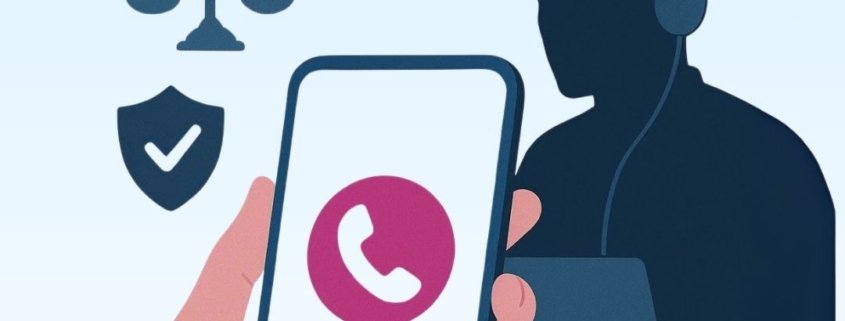Is Phone Tapping Legal in India? Your Complete Guide to Privacy Laws
Phone tapping is a hot topic in India today. Many people worry about their privacy while the government says it needs to tap phones for security reasons. But what does the law actually say? Is phone tapping legal or not?
Let’s break down this complex issue in simple terms so you can understand your rights and the law.
What Is Phone Tapping?
Phone tapping means listening to or recording someone’s phone calls without telling them. It’s like secretly listening to a private conversation. Today, it also includes reading WhatsApp messages, emails, and other digital chats.
The government agencies usually do this to:
- Catch criminals
- Stop terrorist attacks
- Protect national security
- Gather important information
Is Phone Tapping Actually Legal?
Yes, phone tapping is legal in India – but only under strict conditions.
The law doesn’t completely ban phone tapping. Instead, it sets very strict rules about when and how it can be done. Think of it like having a powerful medicine that can only be used by doctors in serious cases.
What Laws Control Phone Tapping?
Three main laws govern phone tapping in India:
1. Indian Telegraph Act, 1885
This old law still controls most phone tapping today. It says the government can tap phones only in cases of:
- Public emergency
- Public safety threats
- National security issues
Only the Home Secretary (a very high government officer) can approve phone tapping.
2. Information Technology Act, 2000
This newer law covers digital communications like emails, WhatsApp, and social media messages.
3. Indian Post Office Act, 1898
This law deals with intercepting letters and postal communications.
Your Constitutional Rights
The Indian Constitution protects you from illegal phone tapping in two ways:
Article 21 – Right to Privacy: In 2017, the Supreme Court said privacy is a fundamental right. This means your private conversations should be protected.
Article 19 – Freedom of Speech: You have the right to speak freely, but the government can put reasonable restrictions for national security.
Important Court Cases
Several court cases have shaped phone tapping laws:
PUCL vs Union of India (1997)
This is the most important case. The Supreme Court said:
- Phone tapping is a serious invasion of privacy
- Only the Home Secretary can approve it
- Every tapping order must be reviewed within two months
- There must be proper reasons for tapping
Other Key Cases
- Courts have generally accepted recorded conversations as evidence if they were obtained legally
- Illegal recordings are usually not accepted in court
- Each case is judged individually
When Is Phone Tapping Allowed?
Phone tapping is legal only when:
- There’s a real threat to public safety or national security
- The Home Secretary approves it – no lower officer can give permission
- There are proper written reasons for the tapping
- It’s reviewed regularly by special committees
- It’s time-limited – not indefinite
What If Your Phone Is Illegally Tapped?
If someone taps your phone without legal permission, you can:
- File a complaint with the National Human Rights Commission
- Lodge an FIR (police complaint)
- Go to court for violation of your fundamental rights
- Seek compensation for privacy violation
The person doing illegal tapping can face up to 3 years in prison.
Getting Legal Help
If you’re facing issues related to phone tapping or privacy violations, it’s important to get expert legal advice. Whether you need help with criminal cases, property disputes, or civil matters, professional legal assistance is crucial.
LEGAL ASSIST provides expert legal services across Delhi. Our experienced team includes:
- Top Lawyers For Property Case in Delhi who understand complex property laws
- Best Delhi Lawyers for Civil Case handling various civil matters
- Specialists in criminal law and constitutional rights
When dealing with sensitive legal matters like phone tapping allegations, having the right legal representation can make all the difference. Our Top Lawyers For Property Case in Delhi also handle privacy and surveillance-related cases with expertise and confidentiality.
Current Challenges
Today’s technology creates new challenges:
- WhatsApp and Social Media: These are also covered under tapping laws
- Bulk Data Collection: Government agencies sometimes collect lots of data
- Lack of Transparency: People don’t always know if their phones are being tapped
- Outdated Laws: Some laws are very old and may not cover new technology well
What Should You Know?
Here are the key points to remember:
- Phone tapping is legal but heavily regulated
- Your privacy is a fundamental right
- Illegal tapping is a crime
- You have legal remedies if your rights are violated
- Always seek legal help if you suspect illegal surveillance
The Bottom Line
Phone tapping in India walks a thin line between national security and personal privacy. While the law allows it in specific situations, there are strong safeguards to protect innocent citizens.
The key is that any phone tapping must be:
- Legal (following proper procedures)
- Necessary (for genuine security reasons)
- Proportionate (not excessive)
- Transparent (with proper oversight)
If you ever face issues related to phone tapping or need legal advice on privacy matters, don’t hesitate to consult with qualified legal professionals. LEGAL ASSIST and our network of expert lawyers are here to protect your rights and guide you through complex legal situations.
Remember, knowing your rights is the first step in protecting them. Stay informed, stay protected, and always seek proper legal counsel when needed.





